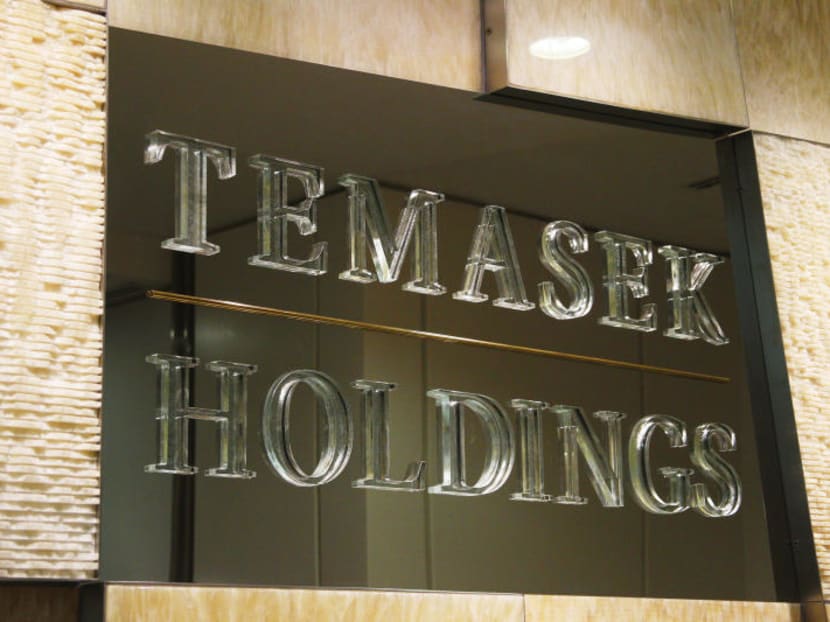Temasek posts record net portfolio value for second year running
SINGAPORE — State investment firm Temasek Holdings posted a record net portfolio value for the second successive year, with the amount reaching S$308 billion for the financial year ending March 31 — surpassing the previous year's high of S$275 million.
SINGAPORE — State investment firm Temasek Holdings posted a record net portfolio value for the second successive year, with the amount reaching S$308 billion for the financial year ending March 31 — surpassing the previous year's high of S$275 billion.
In a media statement released on Tuesday (July 10), Temasek chief executive officer Lee Theng Kiat noted that the net portfolio value is “now almost three times the dotcom peak of just over S$100 billion at the turn of the millennium”.
Temasek’s record performance this year was attributed mainly to its out-performing Asia-Pacific portfolio, with banks in the region and China in particular that contributed to the firm’s record showing, according to Mr Rohit Sipahimalani, who is the joint head of Temasek’s portfolio strategy and risk group.
The investment firm made a net profit of S$21 billion for the financial year, an increase from S$14 billion in the previous financial year.
Temasek invested S$29 billion in the financial year, while divestments reached $16 billion. Nearly half, or about S$13 billion, of new investments went into sectors such as technology, non-bank financial services, life sciences and agribusiness, said Mr Alpin Mehta, the managing director of investment at Temasek, who was speaking at a media briefing. The returns from these sectors outperformed Temasek's overall portfolio, he added.
The firm’s exposure to these sectors now stands at S$80 billion, up from S$9 billion in 2011 when it reshaped its investment strategy. Investments in these sectors now make up about 26 per cent of its total portfolio, compared to about 5 per cent in 2011.
“As a whole, the reshaping of our portfolio towards these focused sectors has had a positive impact on our returns,” said Mr Mehta.
Beyond these focus areas, Temasek noted in its media statement that “technological advances, demographic shifts and changing consumption patterns are disrupting business models or creating new opportunities”.
In view of these shifts, Mr Mehta said that the investment company is looking to six new global trends to guide its future investments – opportunities arising from longer lifespans, rising affluence and advancing technologies in emerging markets, increasing demand for sustainable living, the greater need for smarter systems through use of artificial intelligence and robotics, growth of the sharing economy and increased global connectivity.
For example, the firm has made investments in bio-pharmaceutical companies as well as companies that provide online platforms that allow users to share resources, such as Airbnb and ride-hailing service go-jek, among others.
When asked whether Temasek’s investments in new economy companies would disrupt their other portfolio companies, Ms Png Chin Yee, head of financial services at Temasek said that the investment firm started investing in these early-stage startups precisely to learn the “potential sources of disruption” that could hit their portfolio companies.
“There are efforts by our portfolio companies to make sure they stay relevant and stay at the forefront of innovation and digitisation. In a lot of instances, we actually introduced some of these early-stage investments that we have to our portfolio companies so that they can actually work together and deliver better services to their customers,” she added.
Geographically, investments in Singapore account for the greatest proportion of Temasek's portfolio (27 per cent), with China (26 per cent) close behind.
Investments in the United States and Europe form about a quarter of Temasek's total investments.
US accounted for the majority of its new investments during the year, followed by China and Europe. Sixty per cent of Temasek’s portfolio are in mature economies, while the other 40 per cent is in emerging economies.
GLOBAL OUTLOOK
On the global outlook, Temasek’s managing director of investment Sulian Tay said the firm expects global growth to moderate on the back of rising trade tensions between US and China, political risks in Europe, as well as slower growth from China. The increase in market volatility will also dampen global growth potential, she said.
"We are more cautious," she said. Nevertheless, Temasek remains alert and open to attractive investment opportunities, she added.
In the case of Europe, Ms Tay said that politics remain “downside risks”, particularly in the United Kingdom and Italy.
“The UK political environment is fragile, with few signs of progress in Brexit negotiations,” she said.
On Monday, UK’s Foreign Secretary Boris Johnson resigned over disagreements on Prime Minister’s Theresa May’s Brexit plans.
The risk of Italy leaving the Eurozone remains low, Ms Tay added. However, concerns over the country’s debt could impact sentiments in the region.
On the US, Ms Tay said that there are risks of the economy overheating as it is running above capacity.
“The US is late in its expansion cycle, which increases the chance of a recession,” she said.
As for the ongoing trade tensions between US and China, Mr Michael Buchanan, head of strategy, does not expect the current trade tensions to escalate into a “full-blown” trade war, but there are worries that the situation may escalate.
“One thing in particular we're watching is whether the tensions go beyond just US and China and then move to other countries, as we've seen to some extent, Canada and Europe,” he said.
In view of the increase in downside risks, Mr Mehta said that Temasek “may recalibrate” and slow its “investment pace over the next 9 to 18 months”.
The one-year Total Shareholder Return was about 12.2 per cent, with compounded annualised returns of 15 per cent since Temasek's inception in 1974. Dividend income from its portfolio was S$9 billion for the financial year.









